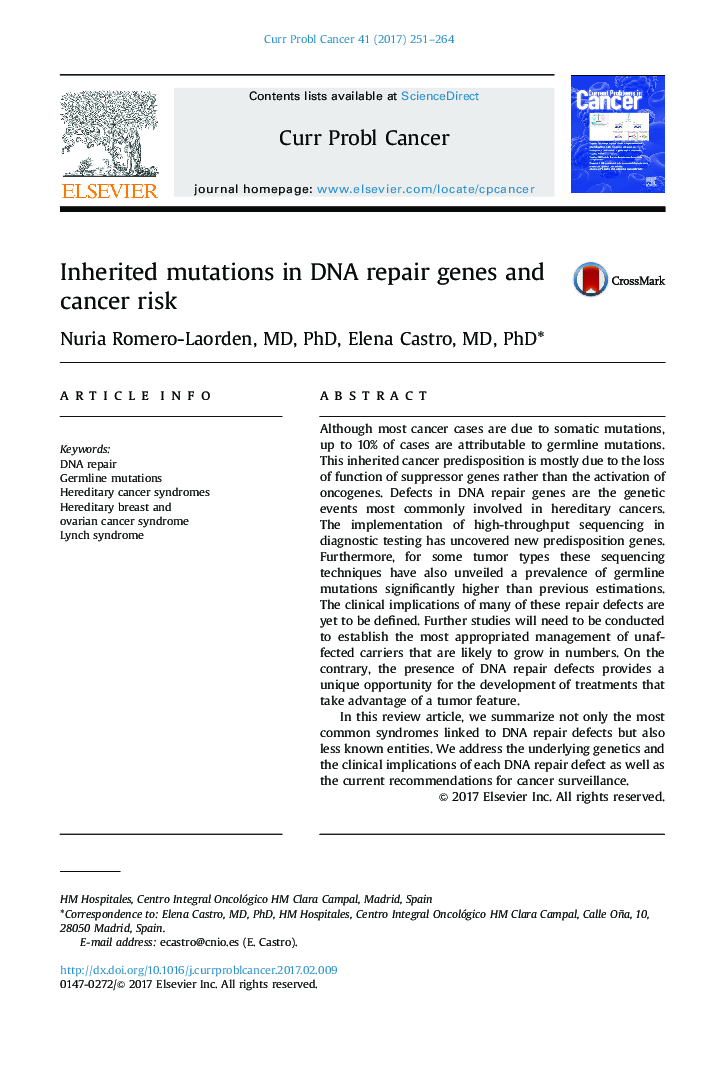| Article ID | Journal | Published Year | Pages | File Type |
|---|---|---|---|---|
| 5664225 | Current Problems in Cancer | 2017 | 14 Pages |
Although most cancer cases are due to somatic mutations, up to 10% of cases are attributable to germline mutations. This inherited cancer predisposition is mostly due to the loss of function of suppressor genes rather than the activation of oncogenes. Defects in DNA repair genes are the genetic events most commonly involved in hereditary cancers. The implementation of high-throughput sequencing in diagnostic testing has uncovered new predisposition genes. Furthermore, for some tumor types these sequencing techniques have also unveiled a prevalence of germline mutations significantly higher than previous estimations. The clinical implications of many of these repair defects are yet to be defined. Further studies will need to be conducted to establish the most appropriated management of unaffected carriers that are likely to grow in numbers. On the contrary, the presence of DNA repair defects provides a unique opportunity for the development of treatments that take advantage of a tumor feature.In this review article, we summarize not only the most common syndromes linked to DNA repair defects but also less known entities. We address the underlying genetics and the clinical implications of each DNA repair defect as well as the current recommendations for cancer surveillance.
